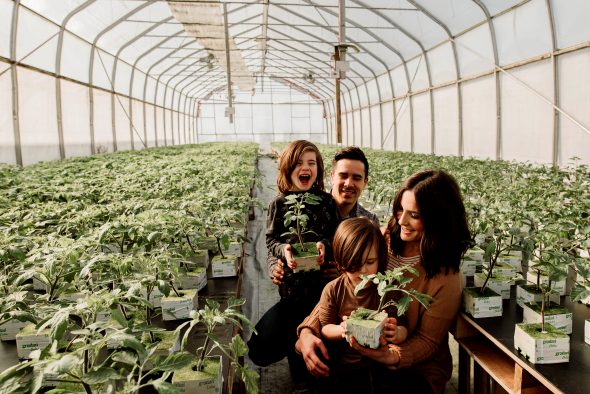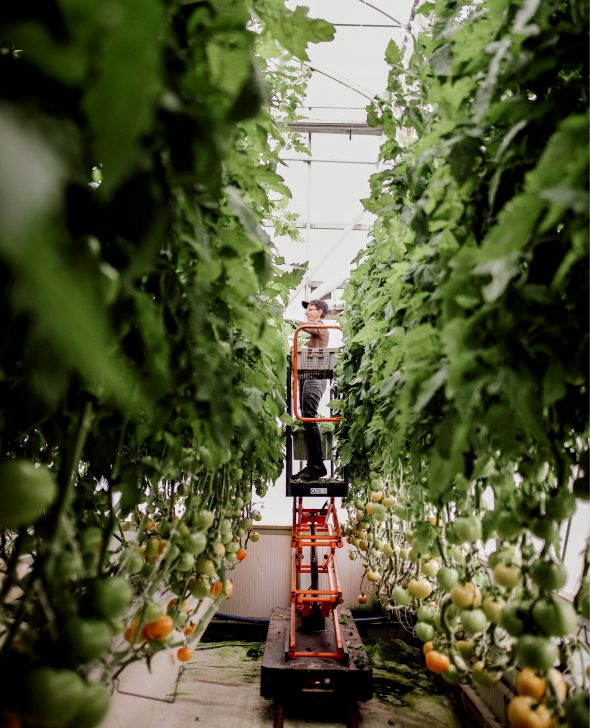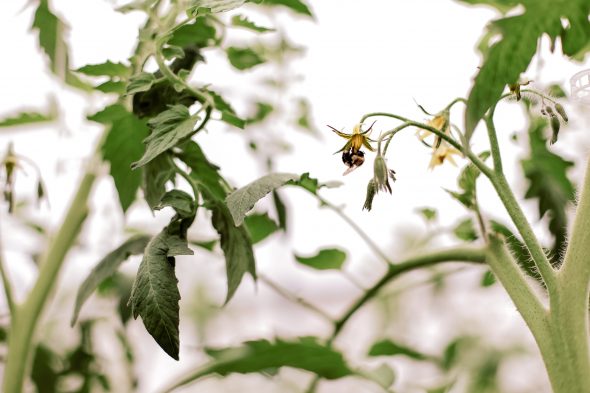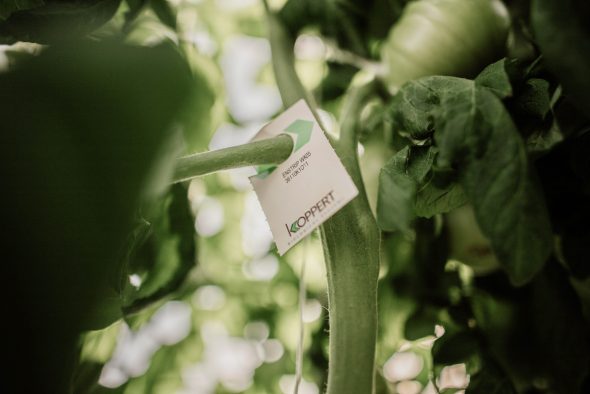How to reduce your environmental footprint
Ecology

Ecology
It is easy to lose sight of Mother Nature in an artificial world. However, when we respect her and let her grow, beautiful things happen.
Reducing our ecological footprint means thinking of the planet every time we do something; it means doing our best, every time, to have the smallest impact on nature. This way of thinking lies at the heart of what we do at tomaté! and has led us to turn to sustainable agriculture as a working method. By reducing inputs, we avoid the use of products such as pesticides. Integrated farming relies on prevention and observation to stay one step ahead of any potential problems, such as diseases, destructive insects or various environmental factors.

Integrated farming is part of the tomaté! greenhouses from pollination, the process during which we rely on our friends the bumblebees. This technique allows the production of the best of the crop in terms of size, vitamin content and shelf life. Because of their frenzied work rhythm and the vast amount of pollen they carry, bumblebees are born to ensure effective pollination. Mother Nature understands how to do things correctly when we give her enough space.
Integrated pest management is another technique inspired by sustainable agriculture. It consists of introducing a natural enemy to control insect pests and avoids the use of pesticides. We chose Encarsia Formosa to manage whiteflies, which are a common insect problem in tomato crops. Microscopic wasps, Encarsia Formosa, arrive on little pieces of cardboard, ready to be put on the plants. As soon as they reach maturity, the females lay their eggs in the whitefly’s eggs or store them as food, relieving our plants from the whitefly’s ravages.


Working in harmony with nature requires continual screening and renewal of the solutions we use to allow our greenhouses to produce the most colourful and most delicious fruits imaginable. It is also a rewarding activity that offers us a taste of one thing, and that is to share the fruits of this ongoing labour with you.